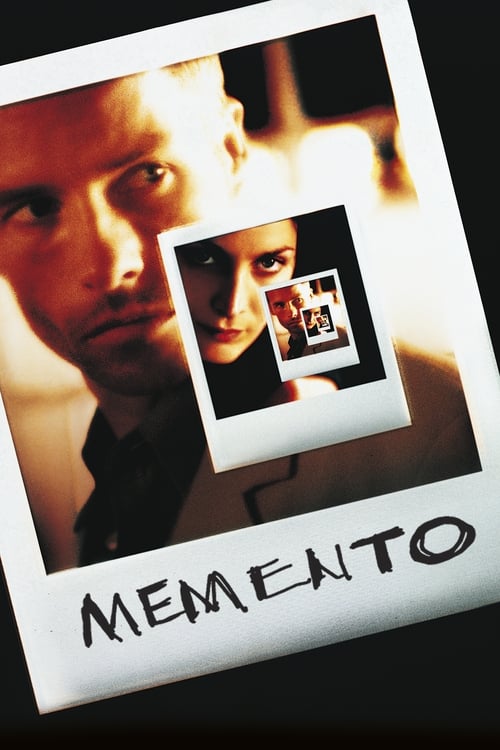Leonard Shelby is tracking down the man who raped and murdered his wife. The difficulty of locating his wife’s killer, however, is compounded by the fact that he suffers from a rare, untreatable form of short-term memory loss. Although he can recall details of life before his accident, Leonard cannot remember what happened fifteen minutes ago, where he’s going, or why.
Memento – Film Review
Published August 21, 2023

From the very first frame, Memento subverts the conventional storytelling techniques, catapulting viewers into the labyrinthine mind of its protagonist, Leonard Shelby. Suffering from anterograde amnesia, Leonard is unable to form new memories, rendering his reality a fragmented series of moments. Nolan ingeniously structures the film in reverse chronological order, inviting us to piece together the fragments alongside Leonard. This narrative device mirrors Leonard’s mental state, plunging us into his disoriented world while challenging us to decipher the jigsaw puzzle of events.
The story is constructed through alternating sequences: black-and-white segments that play in reverse chronological order, and color sequences that move forward. These intertwining timelines create an enthralling interplay of perspectives, forcing us to question the reliability of each scene and forcing us to engage in active participation, like detectives piecing together evidence.
Memento delves deep into themes of memory, identity, and the subjective nature of reality. Leonard’s notes, polaroid snapshots, and tattoos serve as his memory aids, his fragile grasp on past events reflected in his inked body. The film poses fundamental questions: Can we truly know ourselves without memories? How do memories shape our identities? Through Leonard’s quest for vengeance against his wife’s supposed murderer, the film prompts us to consider the extent to which our perceptions color our realities.
Leonard’s condition also forces us to question the notion of truth. The characters he encounters—Teddy, Natalie, and others—each offer conflicting narratives, leaving us, like Leonard, to question the reliability of sources. This blurring of truth and manipulation serves as a commentary on the subjective nature of reality, and it’s a testament to Nolan’s brilliance that he unfolds this complex web with precision and clarity.
Leonard Shelby, portrayed brilliantly by Guy Pearce, is a character shrouded in both sympathy and mystery. Pearce’s performance evokes empathy for Leonard’s plight while also emphasizing the dangers of his obsessive quest. Carrie-Anne Moss and Joe Pantoliano, playing Natalie and Teddy respectively, deliver standout performances that keep the audience guessing about their true motives. The character dynamics are central to the film’s intrigue, as we, like Leonard, are unsure of whom to trust.
Nolan’s signature visual style is evident throughout Memento. The film’s color palette serves as a visual cue for the different timelines—black-and-white for the past and color for the present. Cinematographer Wally Pfister employs dynamic camera angles and perspectives to mirror Leonard’s distorted sense of reality. The film’s distinct visual cues aid in understanding the shifting timelines and contribute to the overall atmosphere of unease and disorientation.
David Julyan‘s haunting score complements the film’s unsettling atmosphere perfectly. The minimalist compositions, with their eerie tones and repeated motifs, mirror the cyclical nature of Leonard’s existence. The sparing use of sound heightens tension, accentuating the moments of revelation and realization.
Memento remains a touchstone in cinematic history due to its innovative storytelling technique. It inspired a wave of narrative experimentation, influencing subsequent films and filmmakers. Nolan’s bold decision to present a story in reverse order not only elevates the viewing experience but also challenges conventional expectations, inviting audiences to engage with the film on a deeper level.
Memento is a cinematic masterpiece that defies the boundaries of storytelling and perception. Christopher Nolan’s audacious exploration of memory, identity, and truth is executed with finesse, offering a thought-provoking experience that lingers long after the credits roll. With its intricate narrative structure, impeccable performances, and thematic richness, Memento cements its place as a crowning achievement in the realm of modern cinema. This film is not just a narrative puzzle; it’s a philosophical meditation that invites us to question our own realities and leaves us astounded by its brilliance.
